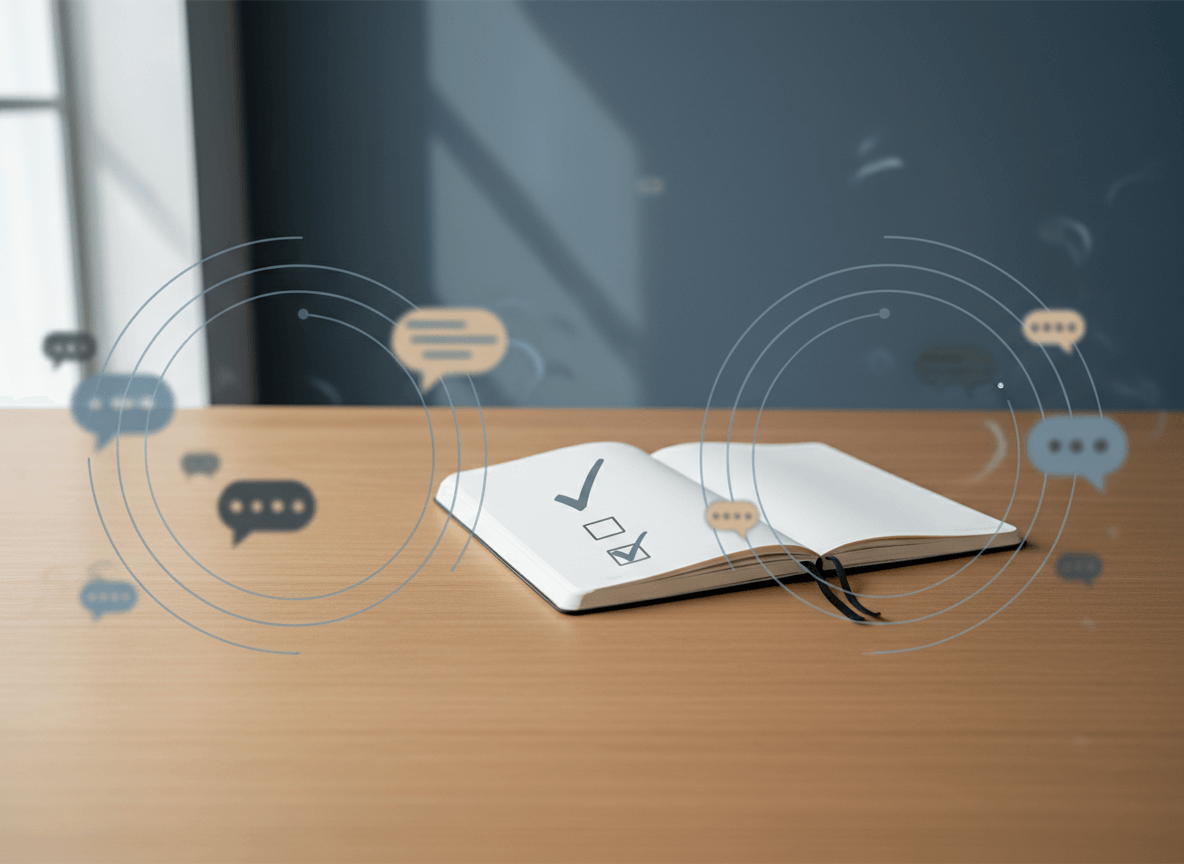Burnout Insomnia: Why Your Brain Won't Let You Sleep
Burnout insomnia is the cruelest.
You are exhausted, but you cannot sleep.
Your body is depleted. Your mind is foggy. You desperately need rest. But the moment you lie down, your brain starts racing.
You replay conversations, worry about tomorrow, or stare at the ceiling feeling wired and tired at the same time.
This is not regular insomnia. This is your nervous system stuck in overdrive, unable to shift into rest mode.
Burnout insomnia is a symptom of chronic stress, and it makes recovery harder because rest is the foundation of healing.
This post explains why burnout disrupts sleep, what happens in your brain and body, and how to break the cycle so you can rest again.
What Is Burnout Insomnia?
Burnout insomnia is sleep disruption caused by chronic stress and nervous system dysregulation.
It is one of the most common symptoms of burnout, and it creates a vicious cycle: burnout prevents sleep, and lack of sleep worsens burnout.
Unlike primary insomnia, which exists on its own, burnout insomnia is a secondary condition. It is caused by the physiological and psychological effects of prolonged stress.
Common signs of burnout insomnia include:
Difficulty falling asleep despite exhaustion
Racing thoughts at night (replaying work conversations, worrying about tasks)
Waking frequently throughout the night
Waking too early and being unable to fall back asleep
Feeling wired and tired at the same time
Unrefreshing sleep (waking up as exhausted as when you went to bed)
Burnout insomnia is not laziness or poor sleep hygiene. It is a biological response to chronic stress. Your nervous system is stuck in fight-or-flight mode, and it cannot shift into the rest-and-digest state required for sleep.
Why Burnout Disrupts Sleep
Burnout insomnia happens because chronic stress dysregulates your nervous system and disrupts your sleep-wake cycle.
Your nervous system is stuck in fight-or-flight mode.
When you are stressed, your sympathetic nervous system activates. This is helpful in short bursts, but chronic activation prevents your parasympathetic nervous system (rest-and-digest) from taking over.
Your body stays alert, even when you are exhausted.
Your cortisol levels are off. Cortisol is a stress hormone that should peak in the morning and drop at night. Chronic stress disrupts this rhythm.
Your cortisol may stay elevated at night, keeping you awake, or drop too low in the morning, making it hard to wake up.
Your brain is hypervigilant.
Burnout trains your brain to scan for threats constantly. Even when you lie down, your mind stays active, replaying problems or anticipating future stress.
This hypervigilance prevents the mental relaxation needed for sleep.
Your sleep architecture is disrupted.
Chronic stress reduces deep sleep and REM sleep, the stages where your body and brain recover.
You may sleep for hours but wake up feeling unrefreshed because you never reached restorative sleep stages.
The Exhaustion Paradox: Too Tired to Sleep
One of the most frustrating aspects of burnout insomnia is the exhaustion paradox.
You are too tired to function, but too wired to sleep.
This happens because exhaustion and sleepiness are not the same thing. Exhaustion is the depletion of physical and mental energy. Sleepiness is your body's readiness to enter sleep.
Burnout causes exhaustion without sleepiness because your nervous system is still activated.
You may feel physically drained, but your mind is racing. You may lie down and feel restless, anxious, or uncomfortable. You may fall asleep briefly, then wake up with your heart pounding or your thoughts spinning.
This is not a failure of willpower. This is a nervous system that has been in overdrive for too long and cannot downshift.
The exhaustion paradox also worsens during the day.
You feel too tired to work, exercise, or socialize, but you cannot rest effectively.
The Long-Term Consequences of Burnout Insomnia
Burnout insomnia does not just make you tired. It has serious long-term health consequences.
1.Cognitive decline. Sleep is when your brain consolidates memories, processes information, and clears waste.
Chronic sleep disruption impairs memory, focus, decision-making, and learning. Over time, this can lead to lasting cognitive problems.
2. Weakened immune system. Sleep is essential for immune function.
Chronic insomnia increases your risk of infections, autoimmune conditions, and inflammatory diseases.
3. Mental health deterioration. Sleep deprivation worsens anxiety, depression, and emotional regulation.
Burnout insomnia can trigger or worsen mental health disorders.
4. Increased risk of chronic disease. Chronic insomnia increases the risk of cardiovascular disease, diabetes, obesity, and stroke.
Your body needs sleep to repair and regulate metabolic processes.
5. Slower burnout recovery. Sleep is the foundation of burnout recovery. Without restorative sleep, your body cannot heal.
Burnout insomnia traps you in a cycle where recovery feels impossible.
How to Fix Burnout Insomnia
Fixing burnout insomnia requires addressing the root cause: nervous system dysregulation.
Here are practical steps that work.
Step 1: Regulate your nervous system during the day.
You cannot fix sleep at night if your nervous system is activated all day.
Practice nervous system regulation throughout the day: deep breathing, gentle movement, time in nature, and breaks from screens.
These practices train your body to shift out of fight-or-flight mode.
Step 2: Create a wind-down routine.
Your brain needs a signal that it is time to sleep.
Create a consistent wind-down routine 60 to 90 minutes before bed. This might include dimming lights, reading, gentle stretching, or a warm bath.
Avoid screens, work, and stimulating activities.
Step 3: Address racing thoughts.
If your mind races at night, try a brain dump before bed.
Write down everything you are thinking about: tasks, worries, ideas. This externalizes the thoughts and signals to your brain that it does not need to hold onto them.
You can also try guided meditation or progressive muscle relaxation to calm your mind.
Step 4: Optimize your sleep environment.
Your bedroom should be cool, dark, and quiet.
Use blackout curtains, white noise machines, or earplugs if needed. Remove work materials, screens, and anything that triggers stress. Your bedroom should be a sanctuary, not an extension of your office.
Step 5: Limit caffeine and alcohol.
Caffeine stays in your system for hours and disrupts sleep even if you consume it early in the day.
Alcohol may help you fall asleep initially, but it disrupts sleep architecture and causes fragmented sleep. Reduce or eliminate both during burnout recovery.
Step 6: Seek professional help if needed.
If burnout insomnia persists despite these strategies, see a doctor or sleep specialist.
You may need cognitive behavioral therapy for insomnia (CBT-I), which is highly effective for chronic sleep problems. In some cases, short-term medication may be necessary to reset your sleep cycle.
Recovery takes time.
FAQ
How long does burnout insomnia last?
Burnout insomnia can last as long as the underlying burnout persists.
With intervention, most people see improvement within weeks to months. Full recovery depends on addressing chronic stress, regulating the nervous system, and rebuilding healthy sleep patterns.
Can you recover from burnout without fixing your sleep?
No. Sleep is essential for burnout recovery.
Without restorative sleep, your body cannot repair, your brain cannot process stress, and your nervous system cannot regulate.
Fixing sleep problems is one of the most important steps in recovering from burnout.
What is the difference between burnout insomnia and regular insomnia?
Burnout insomnia is caused by chronic stress and nervous system dysregulation.
Regular insomnia can have many causes, including medical conditions, medications, or primary sleep disorders. Burnout insomnia improves when the underlying burnout is addressed.
Should I take sleeping pills for burnout insomnia?
Sleeping pills can be helpful short-term to reset your sleep cycle, but they do not address the root cause.
Cognitive behavioral therapy for insomnia (CBT-I) is more effective long-term.
If you consider medication, work with a doctor who understands burnout and sleep disorders.
Why do I wake up at 3 a.m. during burnout?
Waking at 3 a.m. is often caused by cortisol dysregulation.
Your cortisol may spike in the middle of the night, triggering wakefulness and anxiety.
This is common in burnout and improves with nervous system regulation, stress reduction, and consistent sleep routines.
Conclusion
Burnout insomnia is one of the cruelest symptoms of chronic stress.
You are exhausted, but your brain will not let you sleep. Your nervous system is stuck in overdrive, and rest feels impossible.
But burnout insomnia is not permanent. With nervous system regulation, consistent routines, and professional support when needed, you can sleep again.
Recovery takes time, but sleep is the foundation of healing. Prioritize it without guilt.
You May Also Like:
Ready to recover? Get Your Burnout SOS Handbook:

Burnout SOS Handbook: Practical steps to understand, survive, and recover from your burnout. Easy to follow - just right for a brain-fogged head. Start your healing today!
Take the Burnout Test
Our 5-minute Burnout Test cuts through the confusion and gives you a personalized snapshot of where you stand and what comes next.
Start the test →




